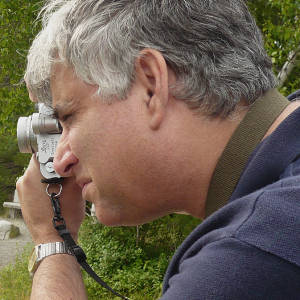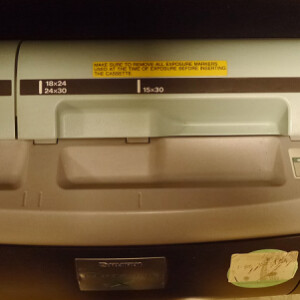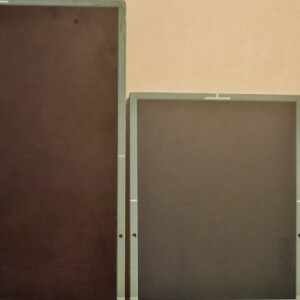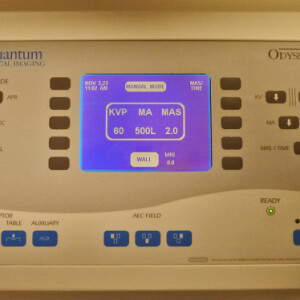Carbon Dated. Lumix M4/3 14mm
Today was the last day of service for our Fuji Medical Systems X-Ray machine. We began using this technology in 2009. Back then, it was a state-of-the-art transitional digital X-Ray system, a mid-point between film technology, and a full digital system, where the images are captured, and immediately come up on the monitor. Back then, only the big downtown hospitals had the full digital. The Fuji system employs cassettes which once would have held a sheet of film, but were adapted to hold a digital “phosphor”. The cassette would then have to be put into a machine which downloaded the information held by the phosphor, turned it into a digital image, and then displayed it on the screen. Each cassette could be reused thousands of times over before the phosphor became damaged, and left artifacts on the image. When we still used film and developing chemicals, the processor took about 3 minutes to spit out the film. The Fuji system cut that time in half, but waiting 90 seconds for an image to appear, sometimes seemed like an eternity.
On Monday and Tuesday of next week, the techs are installing an entirely new, fully-digital system. The images appear instantly on the monitor, no walking backwards and forwards with cassettes. Today, they showed up with a pile of boxes containing the new equipment.
The Fuji system is an old friend: over the years I have figured out what it likes and dislikes, and how to get the best out of it to deliver to the radiologists for a reading. On Tuesday, I'm starting from scratch to figure out the new system's secrets. Other clinical sites in our company have had the new machines installed for some months, so my colleagues are ahead in the game. I will train with one of them on Tuesday at his site while ours is being set up. Today I texted asking him to share his secrets with me. His reply? My secrets are not free; it will cost you lunch!
I decided to preserve a record of our old Carbon machine which has performed such Yeoman's Service for all these years, and present it here. Everything will be gone from the control area except for a computer monitor. There is a cassette - now called a Detector with its own rechargeable lithium battery - which never leaves the room. Each one costs $30,000, - so Don' t Drop It...
The Extras show respectively:
The maw of the Carbon processing machine.
The cassettes in different sizes.
The old control panel.
The pile of new equipment in boxes.




Comments
Sign in or get an account to comment.


